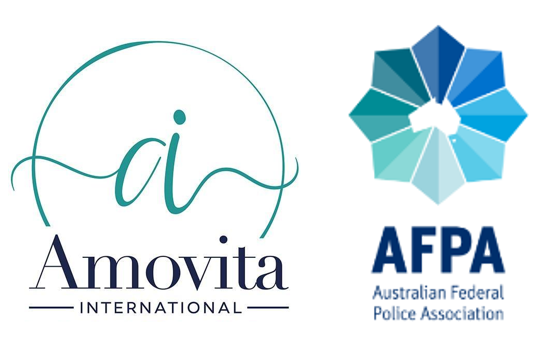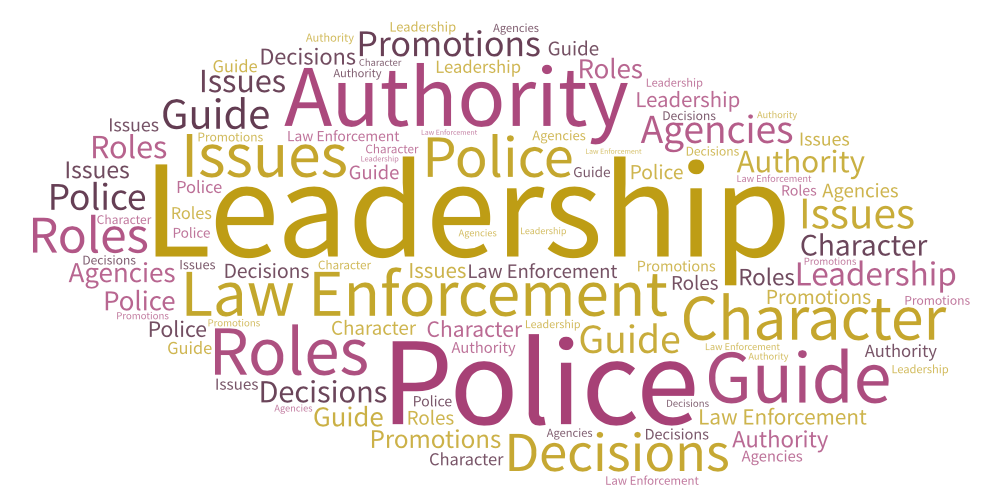by Dr. Chuck Russo
Police management is made up of leaders and those in authority. Let’s discuss how the differences between the two.
We will begin our discussion with those in authority. Authority is, according to Webster:
- The power or a right to command, act, enforce, obedience, or make final decisions
- This power as delegated to another
- Influence of character of office
- The officers of government; the persons or the body exercising power and command
Authority does not necessarily have to do with respect or knowledge – it has more to do with the right to command and the power of the office, or in this case rank, help by a person.
In law enforcement agencies, as well as in the military, other areas of government, private business and non-profit organizations, authority means someone has a certain rank or title that commands obedience to decisions made.
Now let’s look at leadership. According to Webster, leadership is the ability to lead
Lead:
- To guide by holding the hand
- To guide or conduct by showing the way
- To direct and govern
- To hold dignity among
- To induce, to prevail on; to influence
Leaders in those same organizations may not be the one who has the stripes, bars or fancy titles, but may be the ones who step up when need be to tackle whatever difficulties that arise.
Now, conflicts in law enforcement management arise when those in authority are not those who are the true leaders of the organization and vise versa. Promotions can and are many times made by who gets the highest score on the test, who is buddies with who or from a halo effect that since someone just did something spectacular or experienced an abnormal event that they then get the bump up. Notice, no where in here did I address leadership skills, respect, or any other factors that impact one’s ability to lead.
True leaders in the organization may be some street officers, line supervisors or others in lower level positions without the ability to impact sweeping changes. This is where the true conflict lies. It can be a battle for control of the agency those who are the leaders versus those in the positions of authority. The leaders may actually be perceived as threats to the power of those in authority and this causes additional conflict and has the ability to destroy agency moral if not resolved.
So what can be done to have those in authority and those in leadership roles in our agencies be the same people? Going from a closed to an open management style is the first step. Empowering employees at all levels in the organization is another step. Bringing the leaders and those authority together to tackle issues instead of each pushing their particular agenda – that is until they are the same people. Revising the promotional system to first recognize and identify the true leaders of an organization, then working with those people to provide them the skills necessary to rise to positions of authority.
Until those in authority and those in leadership roles are the same people, conflict will continue to plague our law enforcement agencies, causing conflict and destroying morale along the way.
________________________________________________________________
About the Author: Dr. Chuck Russo is the Department Chair of Human Justice/Criminal Justice at American Public University System (APUS). Dr. Russo also serves as the United Nations liaison representing the International Police Executive Symposium. He began his career in law enforcement in 1987 in Central Florida and was involved in all areas of patrol, training, special operations, and investigations before retiring from law enforcement in 2013. Dr. Russo continues to design and instruct courses, as well as act as a consultant for education, government, and industry throughout the world. His recent research and presentations focus on emerging technology and law enforcement applications, officer hiring and retention, post-traumatic stress, agency response to officer suicide, human trafficking, nongovernment intelligence actors, and online learning.







